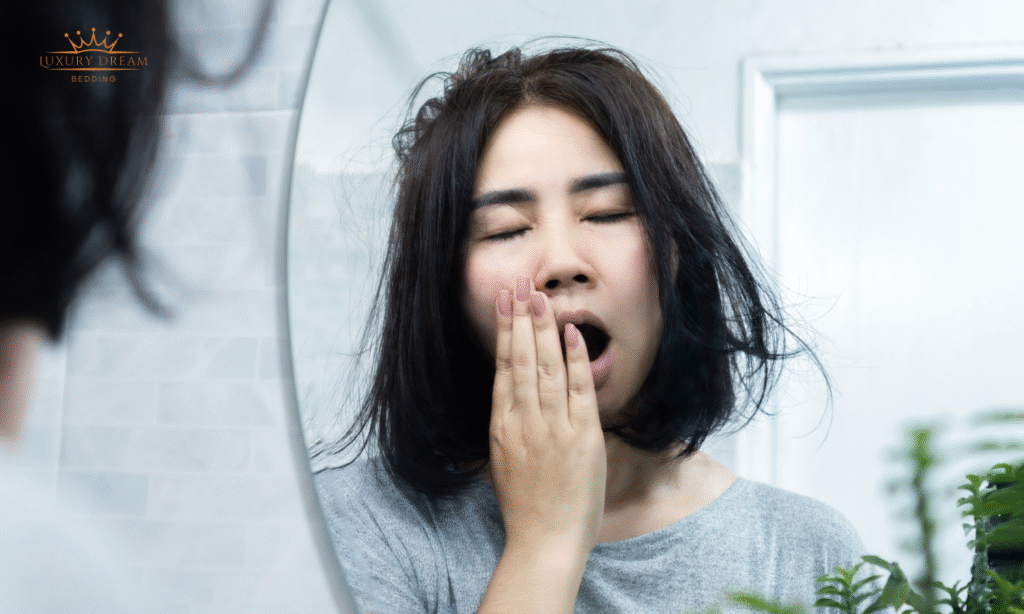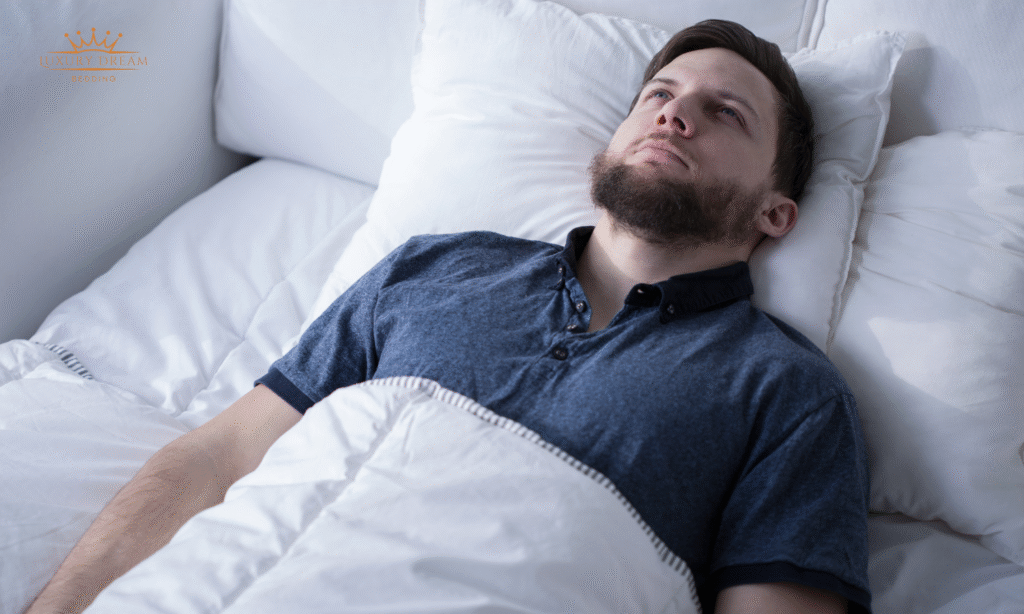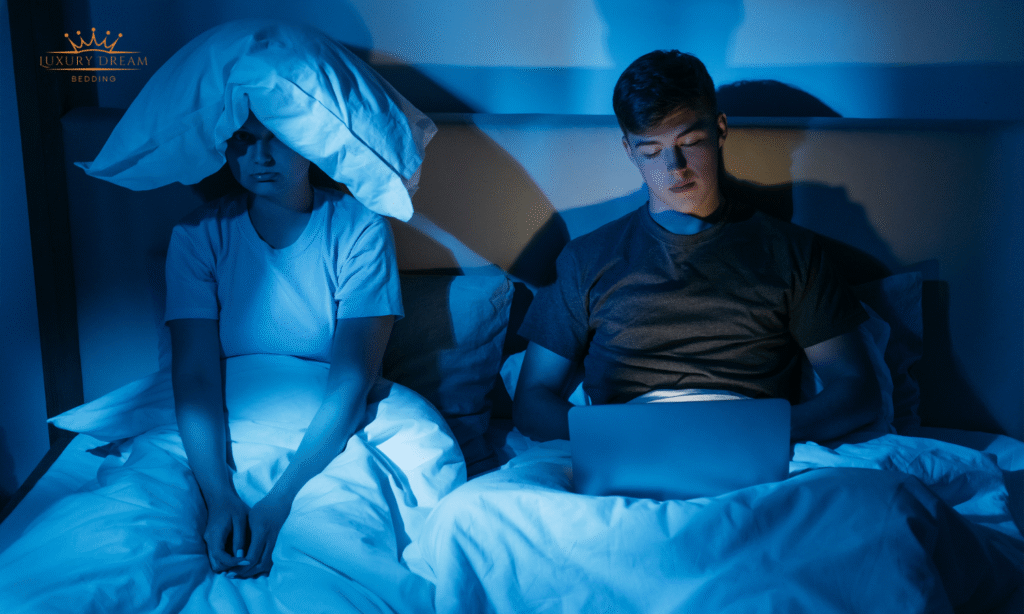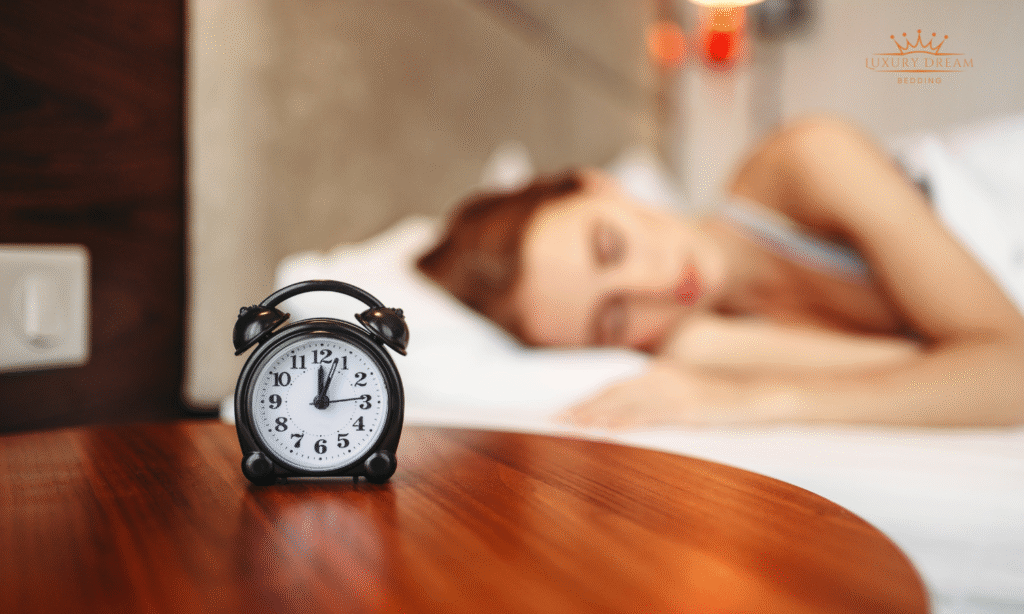Sleep disorders are becoming an increasingly common health issue, affecting millions of people around the world. According to the U.S. National Institutes of Health (NIH), about 30% of adults report difficulty maintaining quality sleep—and stress is one of the leading causes. Stress doesn’t just make it harder to fall asleep; it disrupts the entire sleep cycle, leading to fatigue, poor performance, and mental health challenges.
In this article, we’ll explore the connection between stress and sleep disorders and share effective tips to improve your sleep quality naturally and sustainably.
I. The Link Between Stress and Sleep Disorders

Stress activates the sympathetic nervous system, triggering the release of cortisol—a hormone associated with the body’s “fight or flight” response. Research published in Sleep Medicine Reviews (2021) indicates that elevated cortisol levels at night can suppress melatonin, the hormone that regulates sleep. This results in difficulties falling asleep, shallow sleep, or frequent nighttime awakenings.
People exposed to chronic stress—such as work pressure, financial anxiety, or family issues—are at higher risk of developing sleep disorders, including both acute and chronic insomnia.
Moreover, stress can reduce REM sleep, the restorative phase crucial for physical and mental recovery. This creates a vicious cycle: stress disrupts sleep, and poor sleep increases stress levels.
II. The Impact of Stress-Induced Sleep Disorders

When sleep disorders are caused by ongoing stress, the consequences can be severe, including:
- Impaired memory and concentration: According to the American Psychological Association (APA), sleep deprivation hampers cognitive performance, making decision-making and problem-solving more difficult.
- Higher risk of cardiovascular disease: A 2020 study by Harvard Medical School found that chronic insomnia can raise blood pressure and increase the risk of stroke.
- Mental health conditions: Persistent stress and poor sleep are linked to depression, anxiety, and mood disorders.
- Weakened immune system: Lack of sleep compromises the body’s ability to fight off infections, leaving you more vulnerable to illness.
Understanding how stress affects sleep is the first step toward breaking this cycle. Below are five science-backed strategies to help you manage stress and improve your sleep quality.
See more: Half-Asleep: What It Means and How to Fix It
III. 5 Proven Ways to Manage Stress and Improve Sleep Disorders
1. Practice Meditation and Relaxation Techniques
Mindfulness meditation and deep breathing exercises are powerful tools for stress reduction and sleep improvement. A 2019 study published in the Journal of Clinical Psychiatry showed that mindfulness meditation reduces cortisol levels and enhances sleep quality in individuals with stress-related insomnia.
How to start:
- Set aside 10–15 minutes each evening to meditate. Sit comfortably, focus on your breath, and relax your body.
- Use guided meditation apps like Headspace or Calm.
- Try the 4-7-8 breathing technique: inhale for 4 seconds, hold for 7 seconds, exhale slowly for 8 seconds.

2. Stick to a Consistent Sleep Schedule
Irregular sleep habits can exacerbate stress-induced sleep disorders. According to the American Academy of Sleep Medicine, going to bed and waking up at the same time every day helps align your body’s circadian rhythm, leading to deeper, more consistent sleep.
Tips:
- Aim to go to bed between 10:00–11:00 PM and get 7–9 hours of sleep per night.
- Avoid sleeping in on weekends to maintain a stable sleep cycle.
- Establish a relaxing bedtime routine, such as reading, listening to soft music, or taking a warm bath.
3. Limit Exposure to Stress Triggers Before Bed
Negative news, social media, or arguments close to bedtime can elevate stress and disrupt sleep. Additionally, blue light from screens suppresses melatonin production, according to a 2020 study in the Journal of Clinical Sleep Medicine.
Tips:
- Turn off all electronic devices at least 1 hour before bed.
- Replace screen time with calming activities like journaling or sketching.
- If you must use devices, enable blue light filters or wear blue-light-blocking glasses.

4. Exercise Regularly—at the Right Time
Regular physical activity reduces stress and improves sleep quality. A 2022 study in the Journal of Sleep Research found that just 30 minutes of moderate-intensity exercise daily (e.g., walking, yoga, jogging) helps you fall asleep faster and sleep more soundly. However, exercising too close to bedtime may raise adrenaline levels, making it harder to sleep.
Tips:
- Exercise in the morning or late afternoon.
- Avoid intense workouts after 7:00 PM.
- Do calming stretches or yoga in the evening to wind down.
Get outdoor exercise when possible to boost your circadian rhythm.

5. Adopt a Sleep-Friendly Diet
Your diet directly affects your sleep quality and stress resilience. According to a 2021 article in Nutrients, diets high in sugar, caffeine, and saturated fats increase cortisol and contribute to sleep disturbances. In contrast, foods rich in magnesium, tryptophan, and vitamin B6 support melatonin and serotonin production, promoting relaxation.
Tips:
- Avoid caffeine (coffee, tea, energy drinks) after 2:00 PM.\
- Choose sleep-supportive foods like bananas, walnuts, chia seeds, or warm milk before bed.
- Keep dinner light and eat at least 2–3 hours before bedtime.
Stress is one of the most common causes of sleep disorders—but the good news is that you can take control. By incorporating simple lifestyle changes and consistent stress-management strategies, you can significantly improve your sleep quality and overall well-being.
Start with one or two of the tips above tonight and track how your sleep transforms in the coming days. A restful night’s sleep is not a luxury—it’s your right, and your path to better health starts here.

